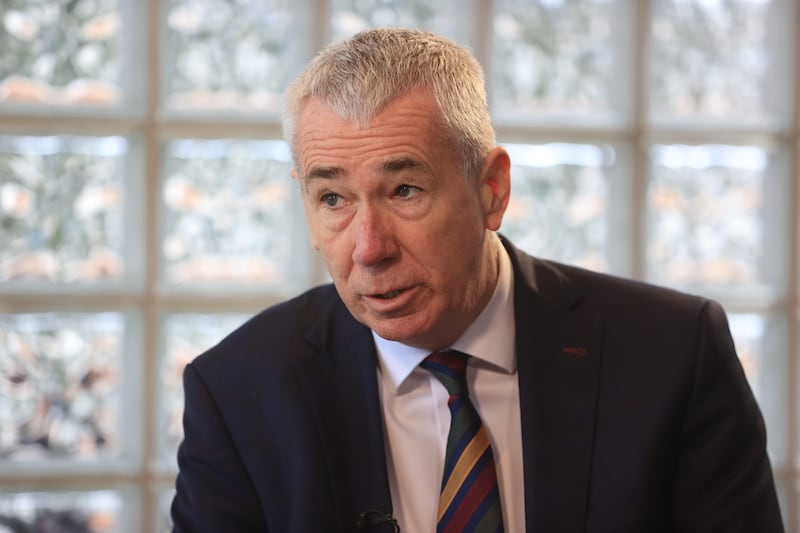With Brexit negotiations intensifying as we get closer to the withdrawal deadline, the political temperature is rising as parties and individuals fear what might be eventually agreed.
The Conservative Party is deeply divided with Brexiteers clearly worried the prime minister will agree to a compromise that amounts to a soft Brexit, even though a no-deal would represent a monumental failure that would have devastating economic implications, certainly in the short term.
Over the weekend we saw former Brexit secretary David Davis disloyally urge Cabinet members to rebel against Theresa May's strategy while supporters talked him up as a potential interim leader.
Meanwhile, DUP deputy leader Nigel Dodds said Brexit had turned into a 'battle for the Union itself,' which is not exactly helpful and comes after Arlene Foster set down her 'blood red' lines, which is an unfortunate turn of phrase.
In fairness, all sides are engaging in hyperbole and nerves are undoubtedly a bit frayed, which is perhaps understandable as the crunch approaches.
But political figures and those in a position of influence also have a responsibility to stay within the confines of reasonable discourse and not use language that stokes fear or heightens tensions.
That is particularly the case in Northern Ireland where we know only too well how inflammatory and ill-judged comments can have unfortunate consequences.
This week loyalist blogger Jamie Bryson warned that special status for Northern Ireland would trigger a unionist reaction on a bigger scale than Drumcree or the flag protests.
He said while there is no appetite for violence, 'peaceful civil disobedience on an industrial scale would clearly have the capability to render an annexed Northern Ireland ungovernable.'
This type of irresponsible commentary from someone who was at the forefront of the disastrous flag protest campaign, is wholly unacceptable and should be firmly rejected by unionist representatives.
Brexit will present many challenges in the months and years ahead, but issues should be resolved politically, free from the threat of destabilising and dangerous protests.







